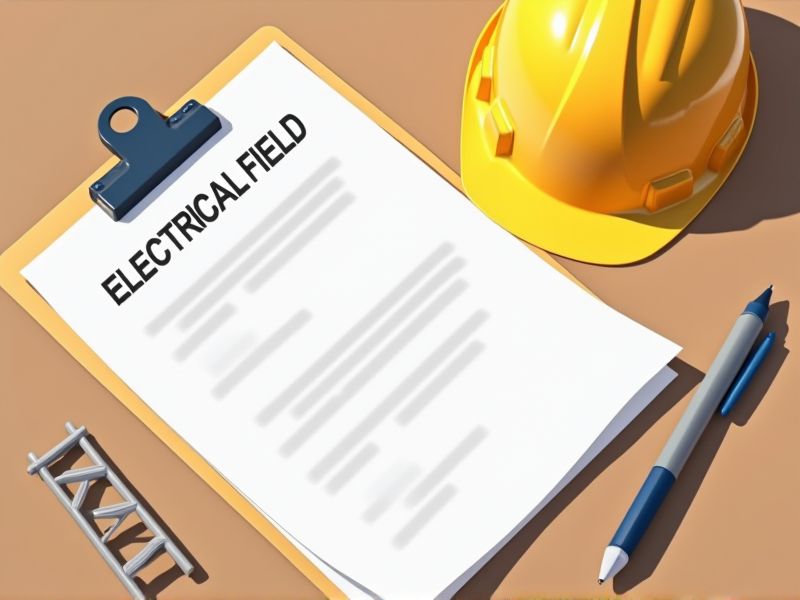
Electrical Field Technicians often work with complex electrical systems, requiring a specific set of skills to ensure both safety and efficiency. Certifications serve as a verification of competency and knowledge in handling high-voltage equipment and interpreting technical schematics. Many employers prioritize candidates with recognized credentials, reducing liability and demonstrating adherence to industry standards. Some crucial certifications you might consider for an Electrical Field Technician include the following.
OSHA 10-Hour Construction Safety Certification
The OSHA 10-Hour Construction Safety Certification is required for electrical field technicians to reduce the risk of workplace injuries by educating them on essential safety practices. This certification helps in identifying potential hazards associated with electrical work, promoting a safer work environment. Companies often mandate this training to comply with federal regulations, which in turn minimizes legal liabilities. Improved safety protocols achieved through this certification can lead to increased productivity and reduced downtime due to accidents.
OSHA 30-Hour Construction Safety Certification
Accidents in the construction industry remain prevalent; obtaining OSHA 30-Hour Construction Safety Certification for Electrical Field Technicians reduces the likelihood of on-site injuries. The certification educates technicians about OSHA regulations, ensuring compliance and avoiding costly fines for employers. Enhanced safety training improves technicians' confidence and competence, directly impacting project efficiency and quality. Employers often prioritize hiring certified technicians, leading to expanded job opportunities and career advancement for those holding the certification.
NFPA 70E Electrical Safety Certification
The NFPA 70E Electrical Safety Certification is needed because it ensures technicians understand and adhere to standard safety protocols, minimizing the risk of electrical accidents. Compliance with NFPA 70E provides legal and professional credibility, which can be crucial for liability concerns. It equips technicians with knowledge about assessing and mitigating hazards associated with electrical work. Reducing workplace injuries can lead to lower insurance costs and improved productivity for employers.
Journeyman Electrician License
Having a Journeyman Electrician License increases credibility, while meeting industry standards. It reflects competence in handling electrical systems safely. Regulatory bodies often require this license to ensure professionals are qualified. Without it, job opportunities might be limited, affecting career growth.
Certified Electrical Technician (CET)
Certified Electrical Technician (CET) certification enhances an Electrical Field Technician's credibility, providing assurance of their skills and knowledge. With CET accreditation, technicians demonstrate adherence to industry standards, ensuring safe and efficient project execution. Possessing CET certification often leads to improved job prospects and potential for higher earnings within the electrical sector. Employers benefit from reduced liability risks, as certified technicians are well-versed in current electrical codes and regulations.
National Electrical Code (NEC) Training Certification
The National Electrical Code (NEC) Training Certification is essential for Electrical Field Technicians because it ensures adherence to standardized safety protocols, reducing the risk of electrical hazards. This certification demonstrates a technician's ability to comply with legal requirements, which is crucial for operational integrity and avoiding compliance penalties. Robust knowledge from NEC training enhances the technician's diagnostic and problem-solving skills, leading to improved efficiency and accuracy in project implementation. NEC Certification provides technicians with a competitive edge in the job market, signaling their commitment to professional excellence and industry best practices.
NCCER Certified Electrical Technician
NCCER certification ensures that Electrical Technicians possess standardized skills and knowledge, increasing safety in workplace environments. Employers often seek NCCER certification as it validates a technician's competence, reducing risk and liability. Certification also boosts technician credibility, potentially leading to more job opportunities and career growth. Industry standards and regulations often require certified personnel to maintain compliance and quality assurance.
Lockout/Tagout (LOTO) Safety Certification
Lockout/Tagout (LOTO) Safety Certification is essential for Electrical Field Technicians to prevent accidental energization of equipment during maintenance. Without proper LOTO procedures, technicians face an increased risk of electrocution or other serious injuries. Certification ensures technicians understand the necessary protocols to effectively control hazardous energy. This knowledge directly impacts the safety standards and reduces workplace incidents, contributing to safer working environments.
First Aid/CPR Certification
Electrical field technicians frequently encounter hazardous environments. Having First Aid/CPR certification ensures they can respond effectively to electrical shocks or injuries. This certification enhances workplace safety by reducing response time during emergencies. Compliance with safety regulations often mandates this certification, minimizing legal liabilities for employers.
Electrical Troubleshooting and Maintenance Certification
Without Electrical Troubleshooting and Maintenance Certification, an Electrical Field Technician might struggle to accurately diagnose and repair complex electrical issues. This certification often provides them with the necessary skills and knowledge to ensure safety compliance and prevent workplace hazards. Employers may prefer or require this certification to standardize quality and reliability in electrical work. Holding the certification can enhance a technician's career prospects by signaling competence and dedication to professional development.
Summary
When you, as an Electrical Field Technician, obtain certifications, your expertise is validated, leading to increased job opportunities. Employers are more likely to trust your skills, resulting in potential salary increases. Certification enhances your credibility, allowing for greater career advancement and stability. Specialized knowledge through certification also improves your capacity to handle complex projects efficiently.
